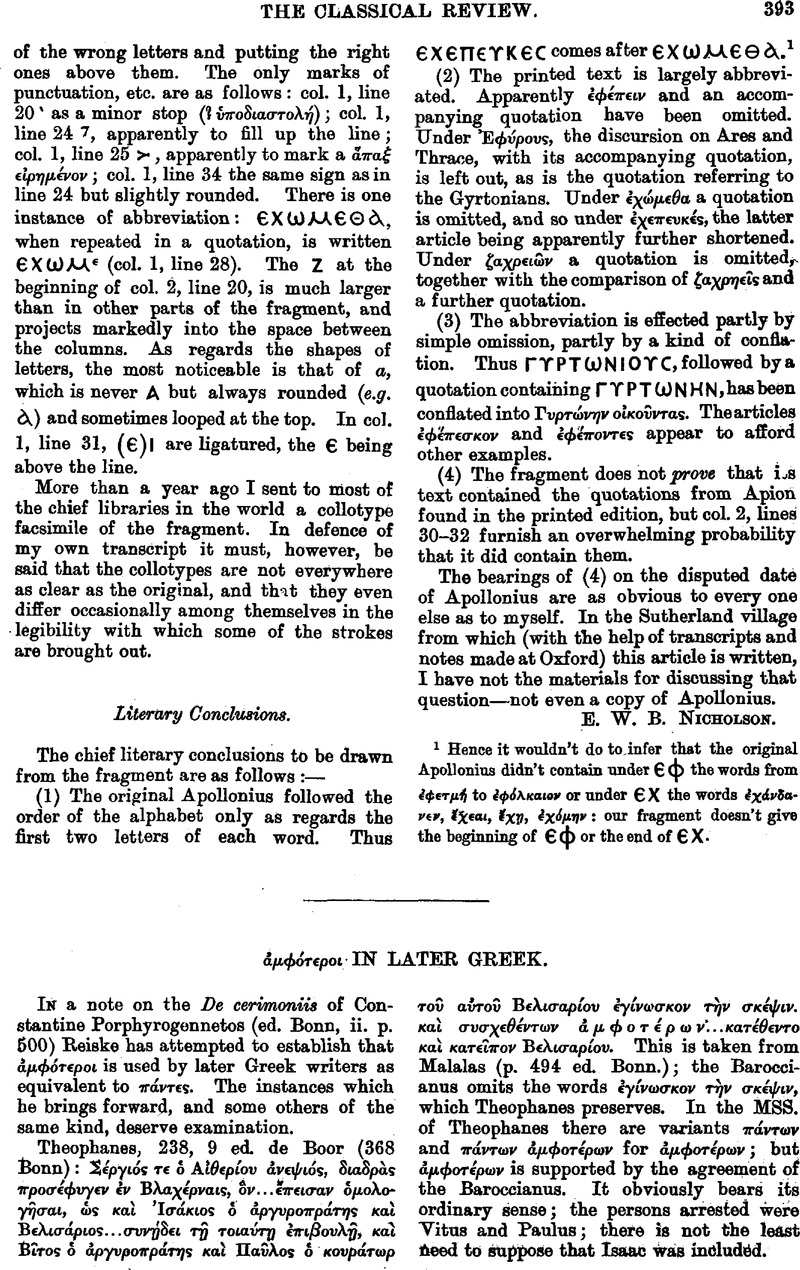Article contents
Abstract

- Type
- Review Article
- Information
- Copyright
- Copyright © The Classical Association 1897
References
page 394 note 1 L'origine du régime des thèmes dans l'empire byzantin, in the Études d'histoire du moyen âge dediées à Gabriel Monod. 1896.
page 395 note 1 It is obvious that it was much harder for a Greek than for a modern child to learn to add. The Greeks had no sign for zero, and they had 27 instead of 9 (10 including zero) symbols. The difficulty can easily be tested by experiment.
page 395 note 2 It is unnecessary to discuss Reiske's reference to a passage in Demosthenes' speech in reply to Callippus, where νφοτρας has its ordinary meaning (§ 19). He also gives a reference to Eusebius which I have failed to identify.
- 1
- Cited by


